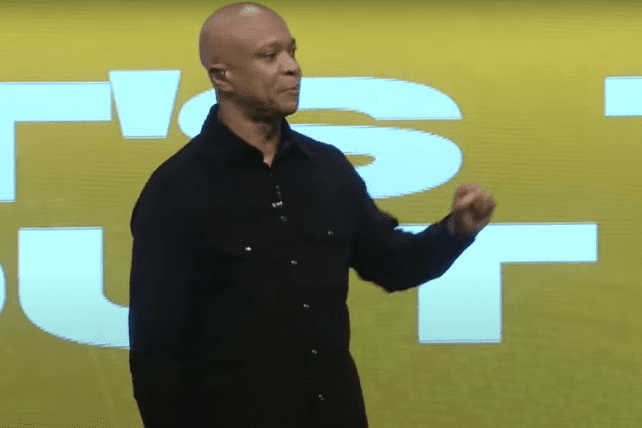Coates referenced “problematic translations,” such as the NRSV or LBT, that say “sexual sin is never right” and “give unlearned readers the impression that the text is saying that sex before or outside of marriage is wrong.”
“The Bible is not saying that,” according to Coates. “It is critiquing prostitution, the immoral and unjust sexual and economic exploitation of poor people, slaves, women, and young males who were oftentimes forced into prostitution in the first century.”
Coates finds “no biblical basis” for abstinence until marriage and fully supports consensual sex, even outside of marriage.
“I really believe that some Christians think that being boring makes them holy,” said Coates.
The sermon was titled, “Don’t Die Like Wheezy.” Wheezy was Coates’ family dog that died while he was away at college. She was never spayed and didn’t go outside to interact with other dogs. Wheezy’s cause of death was due to high levels of sex hormones that built up and caused lumps and tumors. “She died because she was never able to release,” concluded Coates.
Pastor Coates’ Views on Marriage
Pastor Delman Coates has spoken often about marriage. As part of his recent “Entanglements” sermon series, Coats said that he “will not tell you to leave your marriage.” He continued, “But, it’s not healthy to stay in a marriage solely for: comfort, the kids, fear, guilt, or religious tradition.”
Coates outlined three steps to take “when you’re stuck in a bad marriage.” Those steps are:
-
- Wake up from your marital slumber—realize you deserve better.
- Pray to God for clarity on your situation.
- Understand that God will give you confirmation in your spirit and heart that you will experience better.
“Marriage is a wonderful institution, but it is not God’s will for you to remain in bondage,” Coates said.
Coates has also publicly supported same-sex legislation in the state of Maryland. In an article for The Root, Coates outlined how a “meeting with a lesbian couple who had joined our church” had changed his initial views.
The two partners joined the church on separate Sundays, so as not to publicly appear together and raise flags. Coates sat down with the couple to show his support and to hear their story of love, commitment, and challenges within the legal classification of marriage in the state of Maryland.
“I grew increasingly disturbed that those in the Black church so vocal in their opposition to matters of personal morality seemed noticeably silent on matters of public morality,” he said, “issues like poverty, criminal justice reform, banking reform and the range of other social justice issues confronting Black America.”
Coates further explained how this point tied to other matters of equality. “I determined that on the question of marriage equality, I did not want my silence to be interpreted as consent,” he said. “As a person of faith, I aim to live in my faith, not to legislate it. Marriage equality for me is primarily a public policy issue, not a theological one.”

